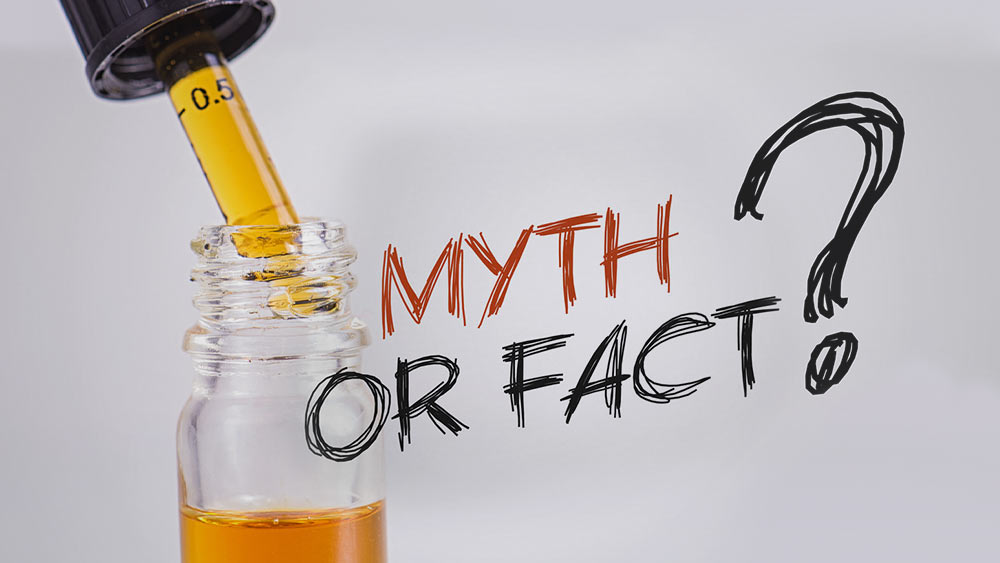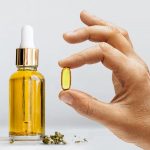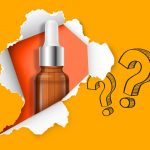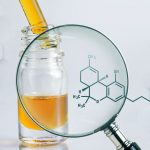For more than a century, the hemp plant and the science of its constituent components— primarily cannabinoids such as cannabidiol (CBD) and terpenes— has been obfuscated by controversy and misunderstanding.
The sudden popularity of wellness supplements formulated with parts of the hemp plant has resulted in a marketplace and consumer communities that are confused by an herb mired in urban legends and outright myths.
But what’s fiction and what are the facts? Let’s put the rumors to the test and find out the truth behind some of the most common CBD myths.
Myth 1: CBD is Psychoactive
Truth: Unlike its chemical cousin tetrahydrocannabinol (THC), CBD delivers no disorientation, psychoactivity (other than a decrease in anxiety and relaxation), or other cerebrally negative effects.
Full spectrum CBD tinctures and capsules derived from hemp are necessarily below 0.3% THC.
Broad spectrum hemp extracts necessarily remove the THC, resulting in a refined formulation that is applicable to a wider range of consumers, including those with jobs and lifestyles that can tolerate no mental fog or intoxication.
Broad spectrum hemp extracts allow wellness practitioners to remain confident that those in their care will avoid the negative pitfalls sometimes associated with the psychoactivity and intoxication caused by THC.
Myth 2: CBD is a Sedative
Truth: While one of the most beneficial efficacies of CBD is its ability to decrease anxiety, it is not a sedative. In fact, CBD causes users to increase general focus and concentration in a more relaxed state.
It is theorized that, because CBD is typically not consumed in the form of an isolate, that the presence of different molecules, including cannabinoids and terpenes, causes some products to deliver a sedative effect. Although CBD may be present in the formulation, it is not the source of sedation that exceeds a reduction in anxiety (and will, in fact, counter the sedation offered by other molecules).
Some people may believe that CBD is a sedative due to the fact that it can deliver efficacy such as better sleep. However, this result is due to a decrease in anxiety, not a true sedative effect.
Myth 3: CBD from Isolate is the Same as Broad Spectrum
Truth: Isolate products offering only CBD exclude a plethora of other beneficial molecules, including cannabinoids, terpenes, and flavonoids.
While many advocate for full spectrum formulations, the inclusion of THC is a risk and problematic for some user populations.
The theory of the entourage effect, first proposed in 1998 by Israeli researcher Dr. Raphael Mechoulam, supports the approach of broad spectrum hemp extracts.
This theory describes how cannabinoids and terpenes, when consumed together create an overall greater or different efficacy, in a framework incorporating a mechanism of “the whole is greater than the sum of its parts.”
Mechoulam published his findings in a research study entitled “An Entourage Effect: Inactive Endogenous Fatty Acid Glycerol Esters Enhance 2-arachidonoyl-glycerol Cannabinoid Activity” in the European Journal of Pharmacology.
Myth 4: CBD is Addictive
Truth: A variety of research studies have revealed that CBD is neither addictive nor does it deliver negative side effects. In a 2017 report entitled “Cannabidiol (CBD)” that was published by the World Health Organization’s Expert Committee on Drug Dependence found that “In humans, CBD exhibits no effects indicative of any abuse or dependence potential…. To date, there is no evidence of public health related problems associated with the use of CBD.”
A 2017 study entitled “An Update on Safety and Side Effects of Cannabidiol: A Review of Clinical Data and Relevant Animal Studies” investigated the potential negative side effects and overall safety profile of CBD.
Reported the study, “In general, the often described favorable safety profile of CBD in humans was confirmed and extended by the reviewed research. The majority of studies were performed for treatment of epilepsy and psychotic disorders.”
Concluded the researchers, “In comparison with other drugs, used for the treatment of these medical conditions, CBD has a better side effect profile. This could improve patients’ compliance and adherence to treatment.”
Myth 5: CBD Oil is Only Good for Treating Pain
Truth: While CBD is a popular treatment for pain, the perception that this is the limit of its efficacy is a gross understatement.
A variety of research studies have shown the effectiveness of CBD and hemp extracts in the treatment of anxiety, autism, depression, epilepsy, multiple sclerosis, systemic inflammation, sleep disorders, and migraine headaches.
It may also be helpful in the treatment of a variety of dermatological conditions, including acne and psoriasis.
A 2011 study involving a double-blind placebo-controlled human trial entitled “Neural Basis of Anxiolytic Effects of Cannabidiol (CBD) in Generalized Social Anxiety Disorder: A Preliminary Report” that was published in the Journal of Psychopharmacology investigated the effectiveness of CBD for social anxiety.
Reported the study’s authors, “Relative to placebo, CBD was associated with significantly decreased subjective anxiety.”
Concluded the research, “These results suggest that CBD reduces anxiety in SAD and that this is related to its effects on activity in limbic and paralimbic brain areas.”
Myth 6: CBD Oil is Illegal
Truth: It is legal in all 50 states to sell, possess, and consume hemp extracts containing no THC. Thus, hemp extract products formulated with CBD are legal, as long as they conform to the regulatory requirements set forth by the U.S. Food & Drug Administration and the Farm Bill of 2018.
In May 2019, the U.S. Transportation Safety Administration (TSA) made changes to its restrictions to allow CBD from hemp oil to be carried on planes.
In this scenario, broad spectrum hemp extracts are preferable to eliminate any potential confusion with TSA officers unfamiliar with the differences.








